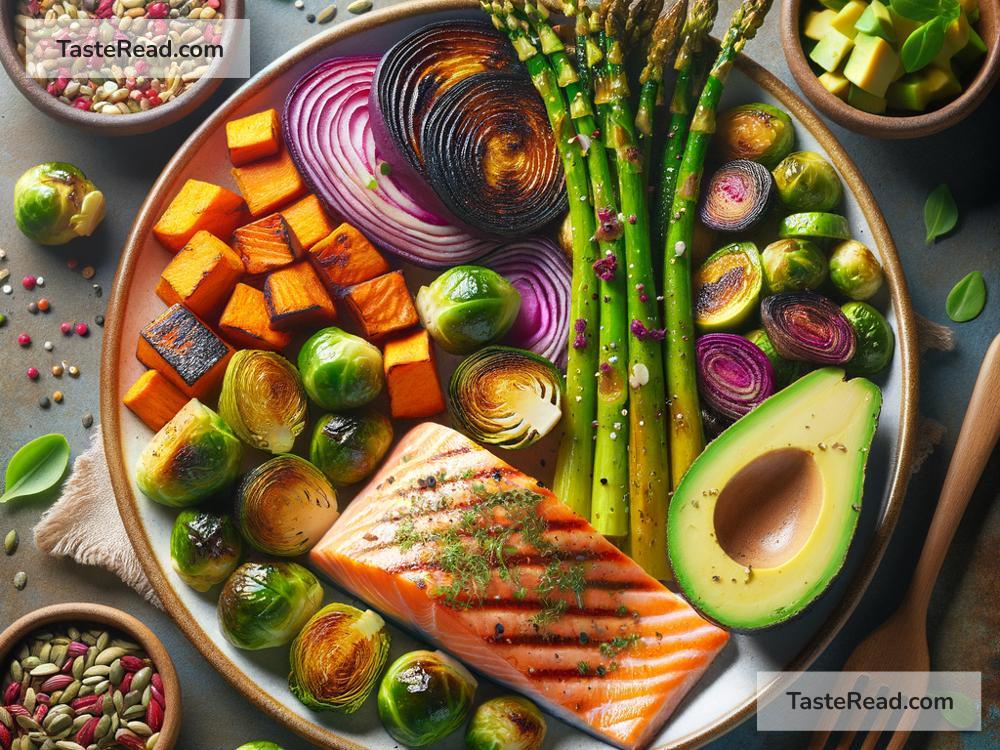Boost Your Insulin Sensitivity with These Healthy Foods
Insulin sensitivity plays a crucial role in keeping your blood sugar levels under control. When your body is insulin-sensitive, it uses insulin efficiently to move sugar (glucose) from your blood into your cells, providing energy. However, poor insulin sensitivity—also known as insulin resistance—can lead to health problems like type 2 diabetes, weight gain, or heart disease. Luckily, the foods you eat can help improve your insulin sensitivity and keep your body functioning well.
In this article, we’ll explore some delicious and easy-to-find foods that can help you boost your insulin sensitivity naturally.
1. Leafy Green Vegetables
Leafy greens like spinach, kale, and Swiss chard are packed with vitamins, minerals, and antioxidants. They are also low in calories and carbohydrates, making them excellent for blood sugar control. Magnesium, a mineral found in leafy greens, has been linked to improved insulin sensitivity.
Try adding spinach to your salads, sautéing kale with garlic, or blending Swiss chard into smoothies. Not only are these vegetables good for your overall health, but they also provide the nutrients your body needs to manage insulin effectively.
2. Whole Grains
Whole grains like oats, quinoa, brown rice, and whole wheat bread contain high levels of fiber. Fiber slows down digestion, allowing a gradual release of sugar into your blood. This helps keep your blood sugar levels stable and improves how your body responds to insulin.
Instead of refined carbohydrates like white bread or pasta, opt for whole grain versions. A bowl of oatmeal for breakfast or a quinoa salad for lunch can go a long way in supporting your insulin sensitivity.
3. Berries
Berries such as blueberries, strawberries, raspberries, and blackberries are rich in antioxidants called anthocyanins. These antioxidants help reduce inflammation and improve insulin sensitivity. Berries are also low in sugar compared to other fruits, making them a great snack or dessert option.
Add a handful of berries to your yogurt, blend them into smoothies, or enjoy them fresh as a sweet and nutritious treat.
4. Nuts and Seeds
Nuts and seeds, like almonds, walnuts, flaxseeds, and chia seeds, are excellent sources of healthy fats, fiber, and protein. These nutrients work together to stabilize blood sugar levels and improve insulin sensitivity. Additionally, nuts and seeds contain magnesium, which supports healthy insulin function.
Snack on a handful of nuts, sprinkle chia seeds over your oatmeal, or add flaxseeds to your baking recipes to incorporate these superfoods into your diet.
5. Fatty Fish
Fish like salmon, mackerel, sardines, and trout are rich in omega-3 fatty acids, which have anti-inflammatory properties. Inflammation in the body can worsen insulin resistance, but including fatty fish in your meals can help combat this issue. Omega-3s also promote heart health, making fatty fish a double-win food choice.
Aim to eat fatty fish at least twice a week. You can grill, bake, or pan-sear your fish and pair it with vegetables and whole grains for a balanced meal.
6. Avocados
Avocados are loaded with healthy fats, fiber, and various vitamins and minerals. The monounsaturated fats in avocados are beneficial for improving insulin sensitivity. Plus, the fiber in avocados slows down digestion, preventing blood sugar spikes.
Enjoy avocados in salads, sandwiches, or as a topping for toast. You can also make homemade guacamole for a tasty and healthy dip.
7. Beans and Lentils
Beans and lentils are rich in protein, fiber, and resistant starch—a type of carbohydrate that acts like fiber and supports blood sugar control. These plant-based foods promote insulin sensitivity by reducing the rapid absorption of sugar into your bloodstream.
Include black beans, chickpeas, lentils, or kidney beans in soups, stews, and salads for a hearty and nutritious meal.
8. Olive Oil
Olive oil is a heart-healthy fat that can improve insulin sensitivity. It’s packed with antioxidants, including polyphenols, that help fight inflammation. Extra virgin olive oil is especially beneficial for insulin function and overall health.
Use olive oil for cooking or drizzle it over salads and roasted vegetables. While olive oil is healthy, remember to use it in moderation, as it is still calorie-dense.
9. Green Tea
Green tea contains bioactive compounds, such as catechins, that have been shown to improve insulin sensitivity. Drinking green tea regularly may also help with weight management, another key factor in maintaining healthy insulin levels.
Swap sugary beverages for green tea to enjoy its health benefits. You can drink it hot, iced, or even mix it with a splash of lemon.
10. Spices like Cinnamon and Turmeric
Certain spices, particularly cinnamon and turmeric, have been studied for their ability to support insulin function. Cinnamon helps improve the efficiency of insulin in moving glucose into your cells, while turmeric’s active compound, curcumin, fights inflammation and promotes blood sugar control.
Add cinnamon to your oatmeal, coffee, or smoothies for a touch of natural sweetness. Use turmeric in curries, soups, or even brew it into a soothing tea.
Final Thoughts
Improving your insulin sensitivity doesn’t mean you need to follow a restrictive or bland diet. By incorporating nutrient-rich foods like leafy greens, whole grains, berries, nuts, fatty fish, avocados, and green tea, you can take steps to support your body and maintain balanced blood sugar levels.
Small swaps, like choosing whole grains over refined carbs or sprinkling cinnamon on your morning oatmeal, can make a big difference over time. Pair these foods with an active lifestyle, proper hydration, and adequate sleep for optimal results. Your body will thank you!


